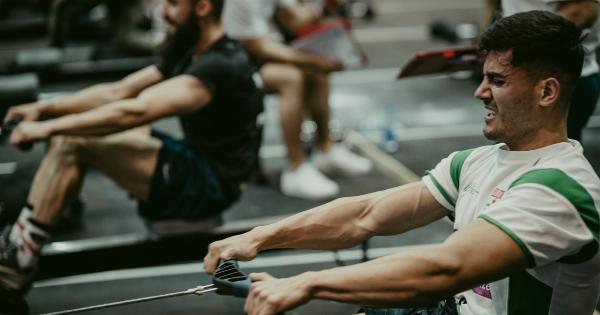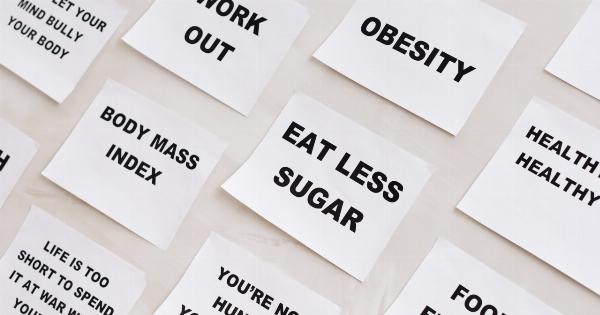Proper hydration is essential for maintaining good health and overall wellbeing.
Whether you’re an athlete, a fitness enthusiast, or just someone who wants to stay hydrated throughout the day, electrolytes play a crucial role in ensuring your body functions optimally. In this article, we will explore what electrolytes are, why they are essential for hydration, and how you can replenish them effectively.
What are Electrolytes?
Electrolytes are minerals that carry an electric charge in the body. These minerals include sodium, potassium, calcium, magnesium, chloride, and phosphate. They are mainly found in your body fluids, such as blood, sweat, and urine.
Electrolytes are involved in a wide range of physiological processes, including maintaining proper fluid balance, aiding in muscle contractions, transmitting nerve impulses, and regulating pH levels.
The Importance of Electrolytes for Hydration
Proper hydration goes beyond just drinking enough water. When you sweat or engage in physical activity, your body loses electrolytes along with fluids.
Electrolytes help regulate the fluid balance inside and outside your cells, ensuring that your cells function optimally. They play a vital role in preventing dehydration, muscle cramps, and fatigue.
During exercise or hot weather, your body may lose substantial amounts of electrolytes, especially sodium and potassium, through sweat.
If these electrolytes are not replenished, it can lead to an imbalance, negatively affecting your performance and overall health.
Signs of Electrolyte Imbalance
An imbalance in electrolytes can manifest through various symptoms. Some common signs of electrolyte imbalance include:.
1. Muscle Cramps: Muscle cramps can occur due to an electrolyte imbalance, particularly low levels of magnesium, calcium, and potassium.
2. Fatigue: Insufficient electrolytes can lead to fatigue and a lack of energy.
3. Headaches: Electrolyte imbalances, particularly low sodium levels, can trigger headaches and migraines.
4. Dizziness: When electrolytes are out of balance, dizziness and lightheadedness may occur.
5. Irregular Heartbeat: Certain electrolyte imbalances, such as low potassium levels, can disrupt the normal rhythm of your heartbeat.
If you experience any of these symptoms, it’s essential to consider your electrolyte levels and take appropriate measures to restore balance.
How to Replenish Electrolytes
There are several ways to replenish electrolytes and maintain proper hydration. Here are some effective strategies:.
1. Consume Electrolyte-Rich Foods
One of the easiest ways to replenish electrolytes is by consuming foods rich in these minerals. Some great options include:.
– Bananas: Bananas are a great source of potassium, which is essential for maintaining proper fluid balance and preventing muscle cramps.
– Oranges: Oranges contain potassium, calcium, and magnesium, making them an excellent choice for replenishing multiple electrolytes.
– Leafy Greens: Spinach, kale, and other leafy greens are rich in magnesium, which helps with muscle and nerve function.
– Nuts and Seeds: Almonds, sunflower seeds, and pumpkin seeds are packed with electrolytes such as potassium and magnesium.
2. Drink Electrolyte-Infused Beverages
Electrolyte-infused beverages, such as sports drinks or coconut water, can be a convenient option, especially after intense physical activity or sweating excessively.
These drinks contain a balanced combination of electrolytes that can help replenish what you’ve lost. However, be mindful of added sugars in some sports drinks and choose options with minimal or no added sugars.
3. Use Electrolyte Powders and Tablets
Electrolyte powders and tablets are another convenient way to replenish electrolytes. These products are easily dissolved in water and provide a quick solution to electrolyte imbalances.
Look for options that provide a good mix of electrolytes and consider those with natural flavors and minimal additives.
4. Eat Balanced Meals
Ensuring your daily meals include a variety of foods can help maintain electrolyte balance.
Eating a well-balanced diet that includes fruits, vegetables, lean proteins, and whole grains provides a wide array of essential nutrients, including electrolytes.
5. Be Mindful of Your Exercise and Activity Levels
If you engage in intense physical activity or exercise regularly, it’s crucial to pay attention to your fluid and electrolyte intake.
Increase your water and electrolyte consumption during and after vigorous workouts to compensate for the losses through sweat.
The Bottom Line
Electrolytes are vital for maintaining proper hydration and overall health. Whether you’re an athlete or simply someone who wants to stay hydrated, understanding the role of electrolytes and how to replenish them is key.
Incorporate electrolyte-rich foods into your diet, consider electrolyte-infused beverages, and be mindful of your fluid intake during physical activity. By prioritizing electrolyte balance, you can optimize your hydration and support your body’s functions.






























